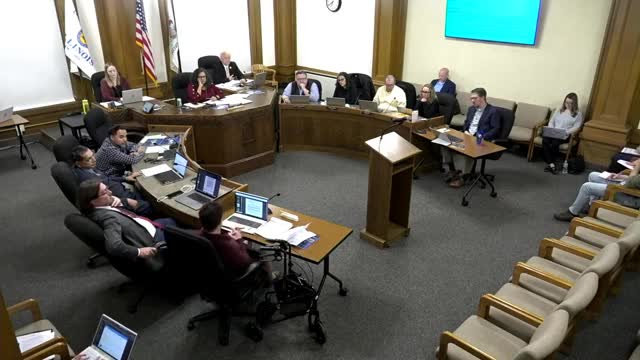Metrolink presents decennial efficiency review, highlights electrification and student fare waivers
Get AI-powered insights, summaries, and transcripts
Subscribe
Summary
Metrolink on Dec. 17 presented a decennial report on service, funding and partnerships, emphasizing recent electrification of buses and Channel Cat vessels, student fare waivers, and community outreach projects.
Metrolink representatives on Dec. 17 delivered a decennial update to the Moline City Council that summarized the agency’s history, funding, service types and recent initiatives including electrification and student-fare waivers.
The presentation, given by Metrolink representative Miss Hirsch, said the report was produced under the Decennial Committee on Local Government Efficiency Act and compiles Metrolink’s organizational history, funding sources, partnerships and capital projects. Hirsch told the council Metrolink provides bus, paratransit, microtransit and the Channel Cat ferry service for the Illinois Quad Cities and has pursued sustainability measures including compressed natural gas and battery-electric vehicles.
Hirsch said Metrolink has built capital infrastructure to LEED standards and called its Channel Cat electrification project one of the first in the nation. She also said the transit agency has waived fares for K–12 student riders in the last three to four years and works with local schools and nonprofits. As an example of outreach, Hirsch described donating a decommissioned bus to the Quad City Botanical Center to create a mobile greenhouse used for student education.
Council members asked about reception to electrification and about fare-collection innovations. Hirsch said the switch to electric vehicles, which began in earnest in 2018 after earlier adoption of compressed natural gas, has been “well received” by riders and staff and was rolled out with public outreach. On fares, Hirsch said Metrolink is working on a new collection system that will allow cashless tap payment and a transit card usable across jurisdictions; she estimated deployment within 12 to 18 months.
Hirsch thanked the city’s appointees to the decennial committee and the board of trustees for their input and closed by inviting questions from the council.
Council action: the presentation was received; no action was taken.
Ending — The report positions Metrolink to seek federal and regional support as it moves from demonstration projects to broader electrification and fare-collection changes; the agency encouraged council members to review the full decennial document for details on funding and partnerships.
